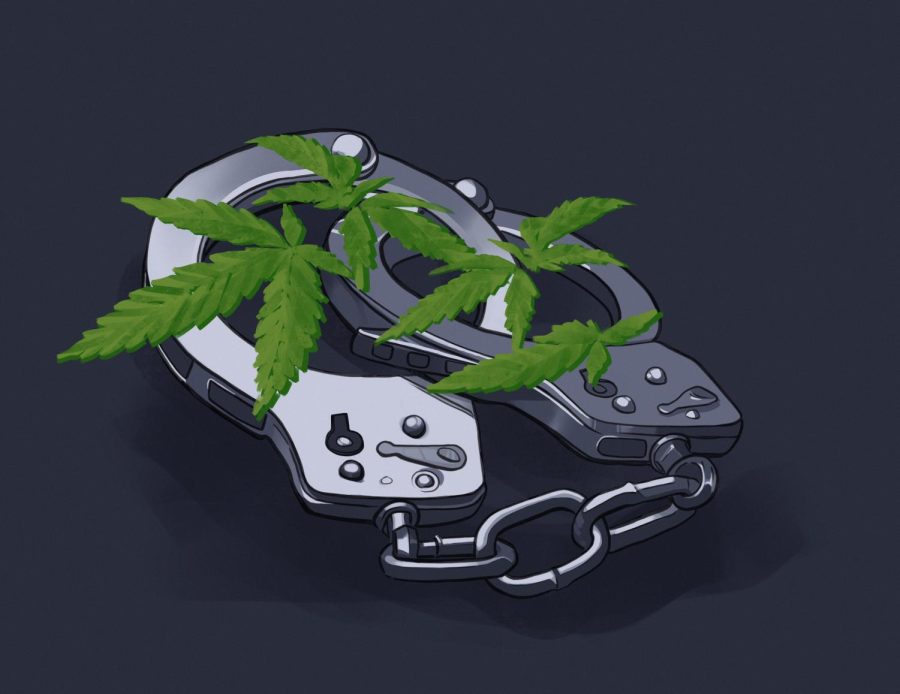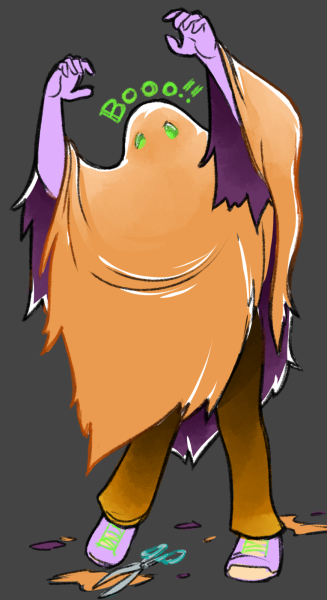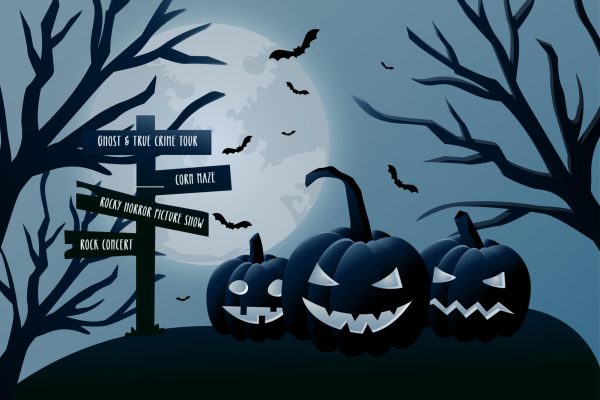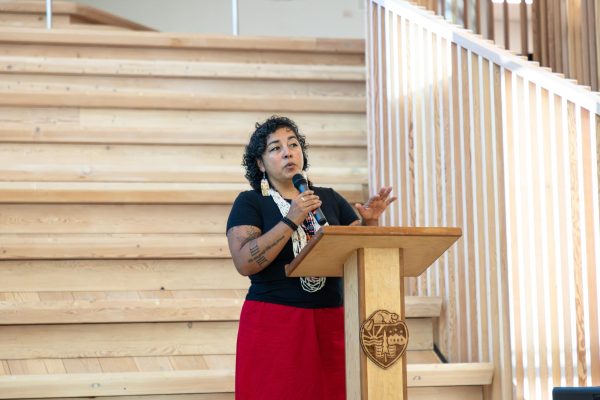‘Marijuana,’ a complicated, racist remnant of the prohibition era—and still in use today
Weed, grass, pot, mary jane, bud, hash, marijuana. While cannabis holds many different slang names, one of the most recognizable—marijuana—comes from a historically discriminatory context.
Before 1910, cannabis was the primary word used for the plant in some medicinal contexts and more recreational use by wealthier individuals in the United States.
Concurrently, in the early 1900s, the United States saw a large influx of Mexican migrants moving to the U.S. following political upheaval in the country. In Mexico, recreational smoking—while still challenged by the Mexican government—was a popular use of cannabis, thus, this use of the plant carried into the U.S.
“Part of that prohibition was really targeting Mexican workers and families and just like the whole culture in general,” said Jason Galle, an employee at Farma, a cannabis dispensary in Portland Ore. “[It] was really just trying to create this evil stigma about cannabis and Mexicans together.”
By 1937, an outspoken proponent against cannabis use in the U.S., Harry Anslinger, testified before Congress, expressing a tie between “marijuana” use and Mexicans, Black people and entertainers—many of which were looked as lower class. Anslinger’s propaganda worked and resulted in federal criminalization of cannabis use.
As a result, moving forward, the word marijuana became widely used when referring to any legalities and mentions of cannabis in the U.S. According to Natchee Blu Barnd, an associate professor in ethnic studies at Oregon State University, slang terms often carry multiple meanings that can get lost over time just like other linguistic terms.
“Word origins are often very difficult to track down or to confine, and they always transform as they move through cultures,” said Barnd.
In 2021, Washington state even removed the term marijuana from its state cannabis laws. House bill 1210 was introduced by representative Melanie Morgan and signed by Governor Jay Inslee.
Thus far no such bill has been proposed within Oregon. While the racist and political history of how the word came into popular use within the U.S. is well-documented, opinions about the use of the word marijuana today vary from person to person.
After educating themselves, Galle’s perception of the word and vernacular used when referring to cannabis changed.
“I personally have curbed my own personal vernacular to just use the word[s] cannabis and weed and flour, and try not to say the word marijuana,” Galle said.
However, public debate has also suggested that the racially discriminatory weight the word held in its past is not the same as today. For Galle, their word choice is not a reflection of any opinion on removing the word from the common vernacular of the public.
“I don’t think that it should be taken away from our Spanish and Hispanic brothers and sisters,” Gale said. “I mean it’s their word. It always has been their word for a very sacred plant.”







